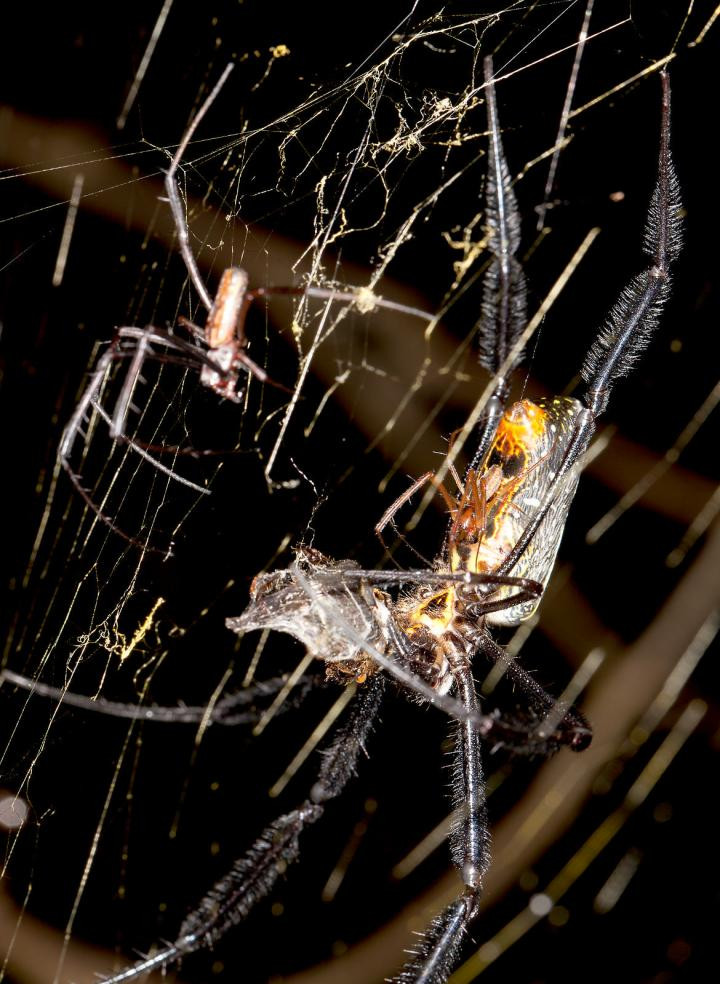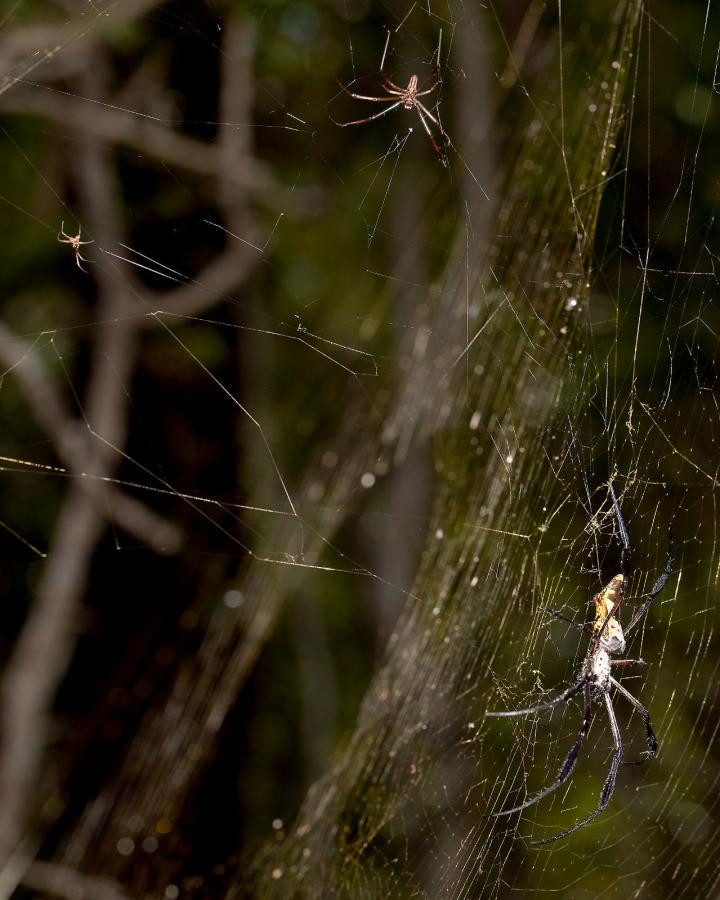Too much cannibalistic sex with other species is bad for rare spiders, but they do it anyway
Male African orbweb spiders will pay for sex with their life, even if their mate is another species.

Spiders don't seem to particularly mind which other species of spider they mate with, even when sex might well end in death for the male, a new study finds.
During expeditions in KwaZulu-Natal, South Africa, researchers found that the tiny males in the webs of giant female African golden orbweb spiders were from a range of species. Females were not at all picky about which of the males in their web they had sex with. The males didn't seem to mind either, even though they stood a good chance of being eaten directly after copulation.
Inter-species mating is rarely reported in spiders, the researchers write in their study, published in the journal Scientific Reports. Such mating is particularly costly among cannibalistic spiders, as for a male sex is an investment that can cost him his life.
Costly cohabitation
As such, the researchers expected inter-species sex to be rare. "However, our field discovery and subsequent laboratory studies, surprisingly, suggest otherwise," they write.
The study looked at a total of 127 webs found at two sites in KwaZulu-Natal, and also monitored the spiders' mating habits in the lab. Four closely related species of African golden orbweb spiders seemed to cohabit indiscriminately: Nephila inaurata, N. fenestrata, N. komaci, and N. senegalensis.

In the wild the numbers of males of different species to the female sometimes outnumbered the males of the same species in the web, and sex within a web seemed to happen at random. In laboratory experiments, they found that mating between species never produced offspring, but that males did not show a preference for their own species when given the option.
Fatal attraction
The authors say that this phenomenon could be explained by several factors: inability of males to recognise their own species, strong male competition to have sex with a female, and the fact that there are more male than female spiders, giving them less choice.
"Our results suggest that heterospecific interactions of Nephila males may involve several mistakes in locating, courting to, and mating with a 'correct' female," says study coauthor Shakira Quiñones of the Research Centre of the Slovenian Academy of Sciences and Arts.
These mistakes are thought to be a particular problem for the rare N. komaci spiders, which were only described in 2009. "N. komaci is severely limited in range and locally rare," the authors write. Too much sex with the wrong species, resulting in no offspring, is likely to be particularly costly for the species.
Inter-species sex is not that rare in the animal kingdom: a total of 167 species are reported to engage in it, the authors note.
© Copyright IBTimes 2025. All rights reserved.






















